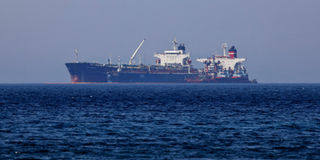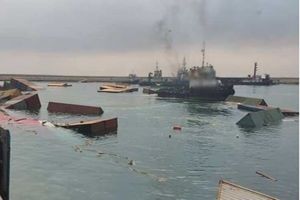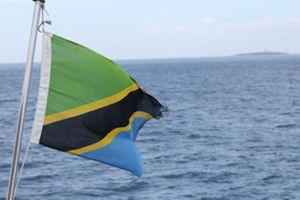
Dar es Salaam. Tanzania has clarified that two fuel tankers that were seized on Tuesday by Iran’s Revolutionary Guards were no longer registered under the Tanzanian flag at the time of their detention, distancing the country from the incident that has drawn international attention.
The vessels, Sea Ranger and Salama, were intercepted on April 22 near Farsi Island in the Persian Gulf while allegedly attempting to exit Iranian territorial waters.
Iran’s state-affiliated Fars News Agency reported that the two ships were carrying approximately 1.5 million litres of what it described as “smuggled” diesel fuel and that 25 foreign crew members were taken into custody and escorted to Bushehr Port.
In response to the reports, the Zanzibar Maritime Authority (ZMA), which oversees the registration of Tanzanian ships and seafarers, stated categorically that neither Sea Ranger nor Salama was on Tanzania’s registry at the time of seizure.
“These two ships are not Tanzanian,” said Mr Yasin Muombwa Thabit, the acting director of ship registrations and seafarers at ZMA, in an interview with The Citizen. “Sea Ranger’s registration ceased in January 2024, whereas Salama’s registration ceased on June 15, 2024.”
Thabit added that the authority would engage with relevant Iranian authorities to obtain further details surrounding the incident. “We are following up with our counterparts in Iran to establish the facts,” he said.
According to Iranian officials, the tankers were caught carrying 1.5 million litres of diesel fuel and an estimated 700 billion Iranian rials (approximately $1.2 million USD) worth of oil.
The cargo is expected to be handed over to Iran’s National Oil Products Refining and Distribution Company for integration into the domestic supply.
Iran, which maintains some of the world’s lowest fuel prices due to heavy subsidies, has long struggled with cross-border fuel smuggling. Seizures of vessels—often accused of transporting subsidized fuel illegally—have become routine operations by Iran’s Islamic Revolutionary Guard Corps (IRGC) in the Gulf.
This week’s seizure is the latest in a series of maritime incidents in the region. In a separate case earlier this month, Iran released seven crew members from a Portuguese-flagged container ship seized in April over alleged links to Israel.


